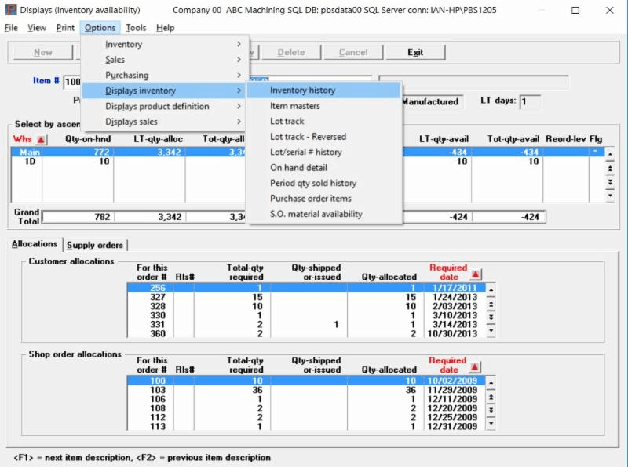Manufacturing Software – Digital Transformation
Upgrading from Spreadsheets
Hello again,
This post is for small and medium-sized manufacturing companies that are vetting new manufacturing software systems. This post was sourced from The Manufacturer, and we hope you find it useful.
Many manufacturers are manually tracking data or using spreadsheets as workarounds for an outdated system.
Spreadsheets are often used for critical data such as inventory levels and purchasing, and though the use of Excel sheets is common, this practice can result in errors.
Outgrowing Spreadsheets
Although spreadsheets are affordable, as demand increases or as your processes become more complex, you may find that your company is outgrowing the process of manual tracking.
Automation results in fewer errors than the practice of gathering data from various spreadsheets – or having to track down employees who have the information stored in their heads.
Combining an outdated manufacturing software system with the use of spreadsheets can result in even more disconnected data tracking.
According to The Manufacturer, “Studies claim that as many as 88 percent of all spreadsheets contain errors. Although this analysis dates back to 2003, the rate probably hasn’t changed much, as slip-ups are most often tied to human error.”
Automation
If you own multiple warehouses or deal with a lot of inventory, you may find manual tracking of inventory to be cumbersome, and automation can streamline all your data into one centralized system.
Small business manufacturing software can give you visibility of the materials that you have on hand and help streamline the purchasing process.
You can ensure that inventory is ordered in a timely manner to have materials on and when you need them. You can also enter back-up suppliers into the system to help streamline purchasing when there are disruptions in your supply chain.
Real-time reporting gives you visibility of your operational processes and order status to keep production moving and prevent bottlenecks.
If you are calculating your profit margins yearly or quarterly using your general ledger, you may find that real-time reporting reveals discrepancies in which items are best-sellers vs. actually profitable.
Manufacturing ERP
A good manufacturing system scales to meet your unique needs rather than force you into a one-size-fits-all solution.
Streamlining operations and gaining visibility can help with more on-time deliveries for better customer service.
If you are manually tracking with spreadsheets or using workarounds due to an outdated system, PBS Manufacturing can help provide more throughput with fewer employees, freeing your staff up for other critical operational tasks.
Passport Software’s small business manufacturing software is modular, and you can select only the modules you need and add on as you grow: Inventory Management, Product Definition, Customer Order Processing, Product Purchasing, Master Scheduling and MRP, Capacity Planning, Shop Floor Control, and Manufacturing Job Costing.
Our Manufacturing solution integrates with our Accounting Software for a powerful yet affordable ERP system.
For more information, call Dave at 800-969-7900 x145. Or, contact us – we are here to help.

